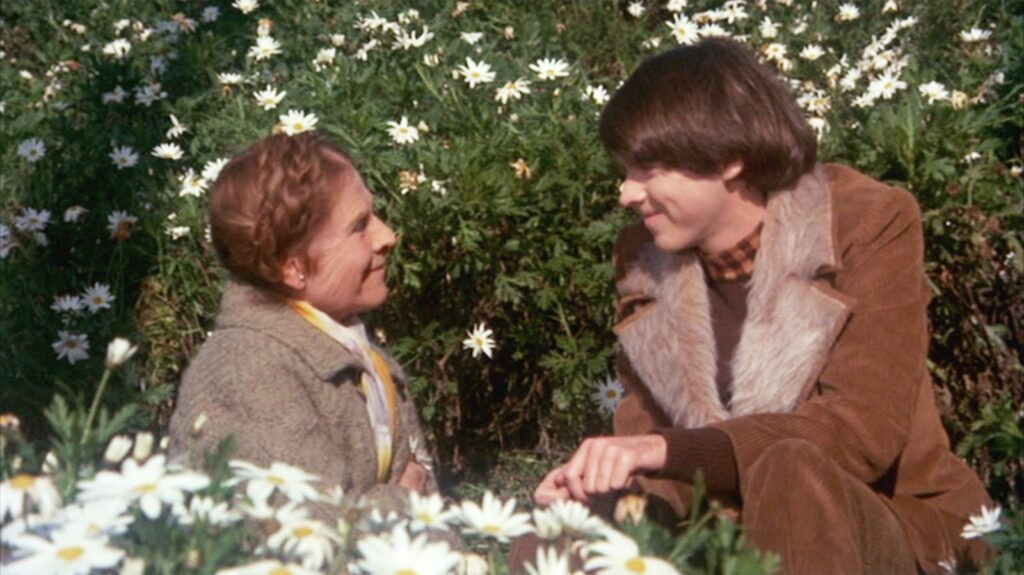
Harold & Maude (1971) is the first of three films directed by Hal Ashby in the first half of the seventies that deals with death. The explicit nature with which Colin Higgins screenplay approaches the question of mortality as a literal subject sets Harold & Maude apart from Ashby’s other films. The Last Detail (1973) and Shampoo (1975), both scripted by Robert Towne, deal with death as a figurative or analogous concept.
The most obvious approach to death Harold & Maude makes is in it’s depiction of Harold’s (Bud Cort) faked suicides and Maude’s (Ruth Gordon) 80th birthday celebration. The relationship between these two characters is contradictory to the common approach to youth and old age in the cinema. Harold has given up on life, fixated upon death as a means to elude the monotony of life in a capitalist society. Maude, on the other hand, revels in her eccentric inventions, her artwork, petty crimes, and the memories of her revolutionary youth in what we can assume is Russia during the rise of communism. Maude not only teaches Harold how to “live life to its fullest”, but how to escape the monotony that dogs him through individual acts of societal subversion.
The role reversal in Harold & Maude not only indicates the disillusionment that accompanies a failed social revolution, but the inevitable pattern of political upheaval. Ashby, a long time film editor, was infamously known in Hollywood for his hippie life style and leftist views. The disillusionment of Harold & Maude is quite possibly tied to his own, and may in fact be his way of justifying the failed attempts toward social change his generation hoped to undertake.
What Ashby does with his skillful editing and a clever employment of Cat Stevens songs is to parallel the physical death with which Harold is obsessed and that Maude ultimately experiences with the political death Maude’s subversions are the result of and Harold’s mother’s behavior is indicative of as well. This tactic prevents Harold & Maude from reading as a preachy, post-love-in mantra. Instead, the political agenda of the film exists only as a subtext, allowing the audience to become totally invested in the comic misadventures of the films protagonists.
